And how are things in Nagoya?
In the summer of 2023, Mayke Scheffer participated in the ‘Denryu’ study trip to Japan organized by study association e.t.s.v. Thor. For four weeks they travelled around the country, visiting companies and universities related to Electrical engineering. They talked to peers, learned about Japan's culture, past and future plans. Mayke fell in love with the country and after two weeks, she asked a university whether it was possible to do her master's internship there. Fast-forward, nine months later she left for Nagoya University's Power Electronics lab.
"What's it like in Japan?
The question I get on a daily basis, answer, think about and write about. Japan is fantastic! Japan is very Japanese. Week one consisted of Jetlag, meeting people, forgetting everyone's name, introducing myself to one person five times and not introducing myself to five others because I thought I already did.
Week two was the culture shock, I practiced Japanese for nine months, but I don't speak a word (I think this is the 'duolingo syndrome'), going to the supermarket took forever because I couldn't find anything and had to change the recipe in my head every time because certain things just aren't available. Week two was also the week I started a blog, to give a little direction to the question of 'what's it like in Japan', both for myself and my friends and family in the Netherlands.
What's it like at the university?
The academic year started here on Wednesday, April 10, so when I had my first day on March 11, the students here were still on ‘vacation’. In Japan, it is common for master's students to work on their graduation research for two years; in addition to their graduation project, they take courses. So during that vacation between years 1 and 2, they keep working on their project, with a day off here and there. It is hard for them to grasp that I am doing a research project here in three months and that I am only starting my graduation project after this.
Students here are part of a ‘labo’, the Japanese abbreviation for laboratory (not to be confused with the afko ‘labo’ used in The Netherlands) from their last year of bachelor's. The Yamamoto (Power Electronics) labo that I am part of here is similar to the research groups at TU/e. One big difference is that the students and staff make up the labo together: we have two lab rooms, so each student and staff member has their own desk, every Wednesday is a seminar in which a number of students or staff members present their research for everyone in the lab, there are activities such as a monthly movie night, bi-weekly sports night and on Fridays everyone speaks English at lunch. The meetings and presentations are in Japanese by default, the slides I have been given are Japanese, and for many labmates the English language is a challenge. Short sentences, slow talking, simple words.
Due to my fortunate timing, I was in Japan just in time to experience both the "farewell party" for graduates, and the "welcome party" for new members. During those nomikais (drinking parties), I quickly noticed that Electrical Engineers here, just like in Eindhoven, are a lot less shy after a few beers.
'What's your place like?'
The house I live in has 40 rooms, about half of which are occupied at the moment. There is a living room, kitchen with dining room, home theater/gym, hobby room (including piano), bathroom and (I think) 8 showers. In the Netherlands I traded in my student room for a studio last November, using my 6-year waiting time at Vestide, in Nagoya I could choose which room I wanted based on the dates I entered, then I got a credit card link to confirm the reservation (and the rent is half of what I pay in Eindhoven.
Such a Sharehouse is incredibly diverse, there are a few Japanese, a German, a Bruneian, a Korean, but I think half the residents are French. The ages range from 20 to 40, there are those working and those studying, there are those who think washing dishes is optional and those who complain that no one properly washes the dishes. You can always find someone to eat dinner with, chat with or watch a movie with.
"Do you feel at home?
When I compare my experience here to what I hear from other students, I think I am incredibly lucky. I feel at home here and that is mainly due to the people. It is the roommate who sends me a message when I am still in the lab at 7 p.m.: 'Mayke come home we need to eat together!!!'. It's my fellow students who stubbornly keep talking Japanese to me, patiently waiting for the little gears in my head to process it. It is my fellow second year master students who, despite knowing each other for years and normally always speaking in Japanese, still take me on adventures ('Laboventure').
During the Denryu study tour, I fell in love with Japan. I am living in a fairy tale here for three months, carried on a pink cloud by my Dutch privileges. I know. Every conversation about my life here is a consideration of whether I bring it up or wait for the other person to tell me about all the difficulties I am now escaping. I see the pressure and stress on these students, I see the difference between my hourly wage in a Dutch restaurant and the Japanese hourly wage. I also see the pride, the motivation, and the love for the country. Japan is perfecd and if you want to know more about it I would like to refer you to my blog.
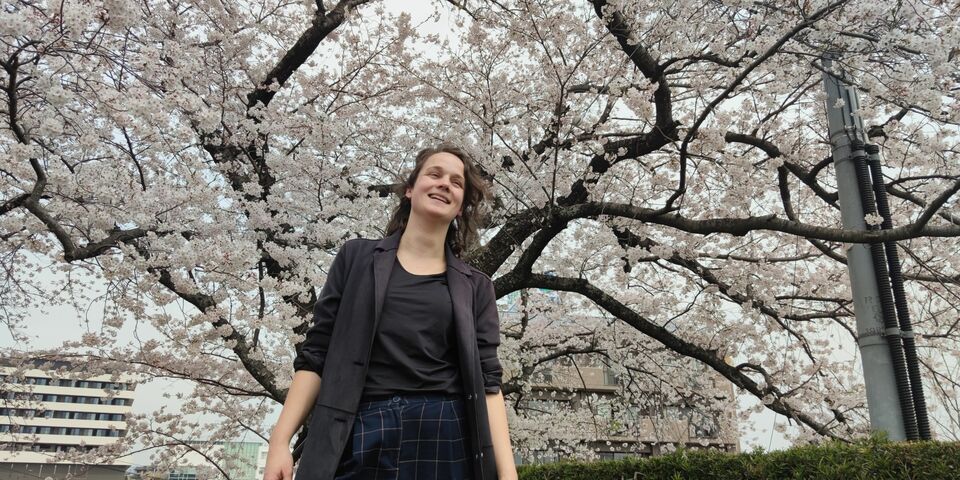

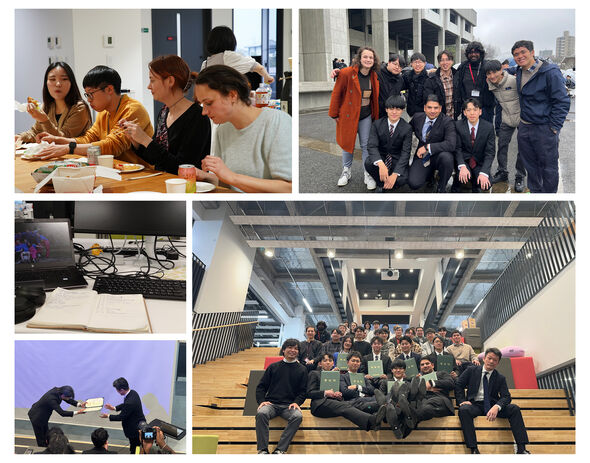
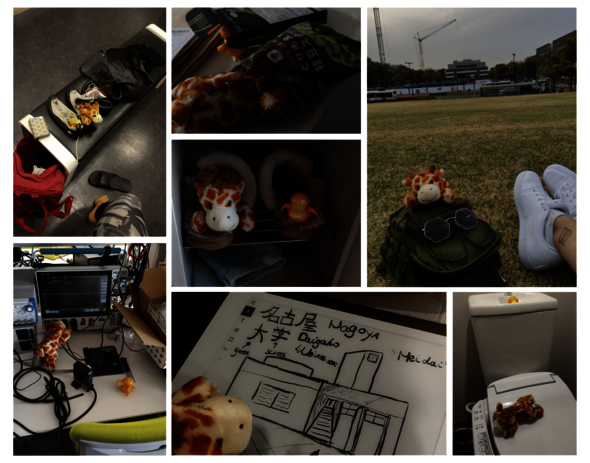
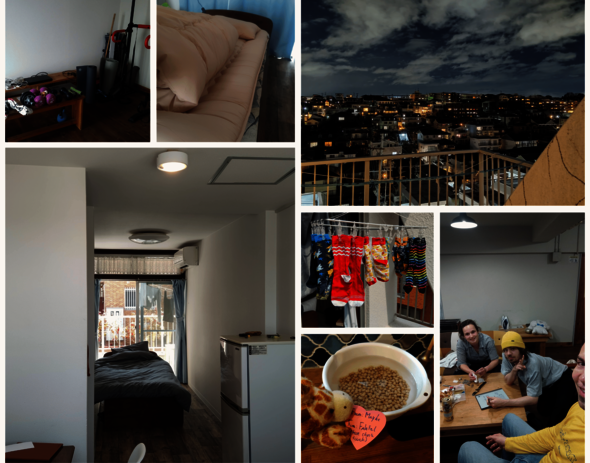
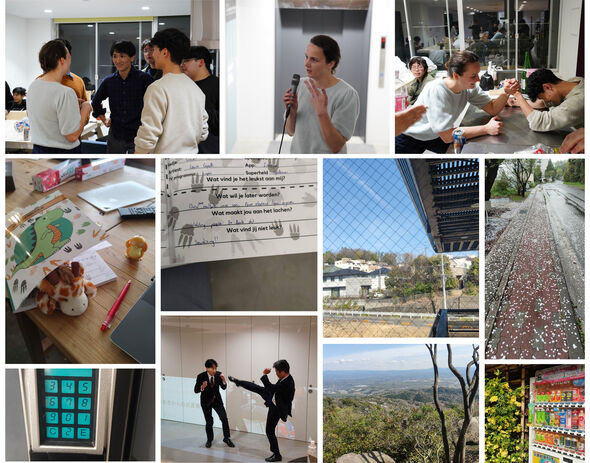
Discussion